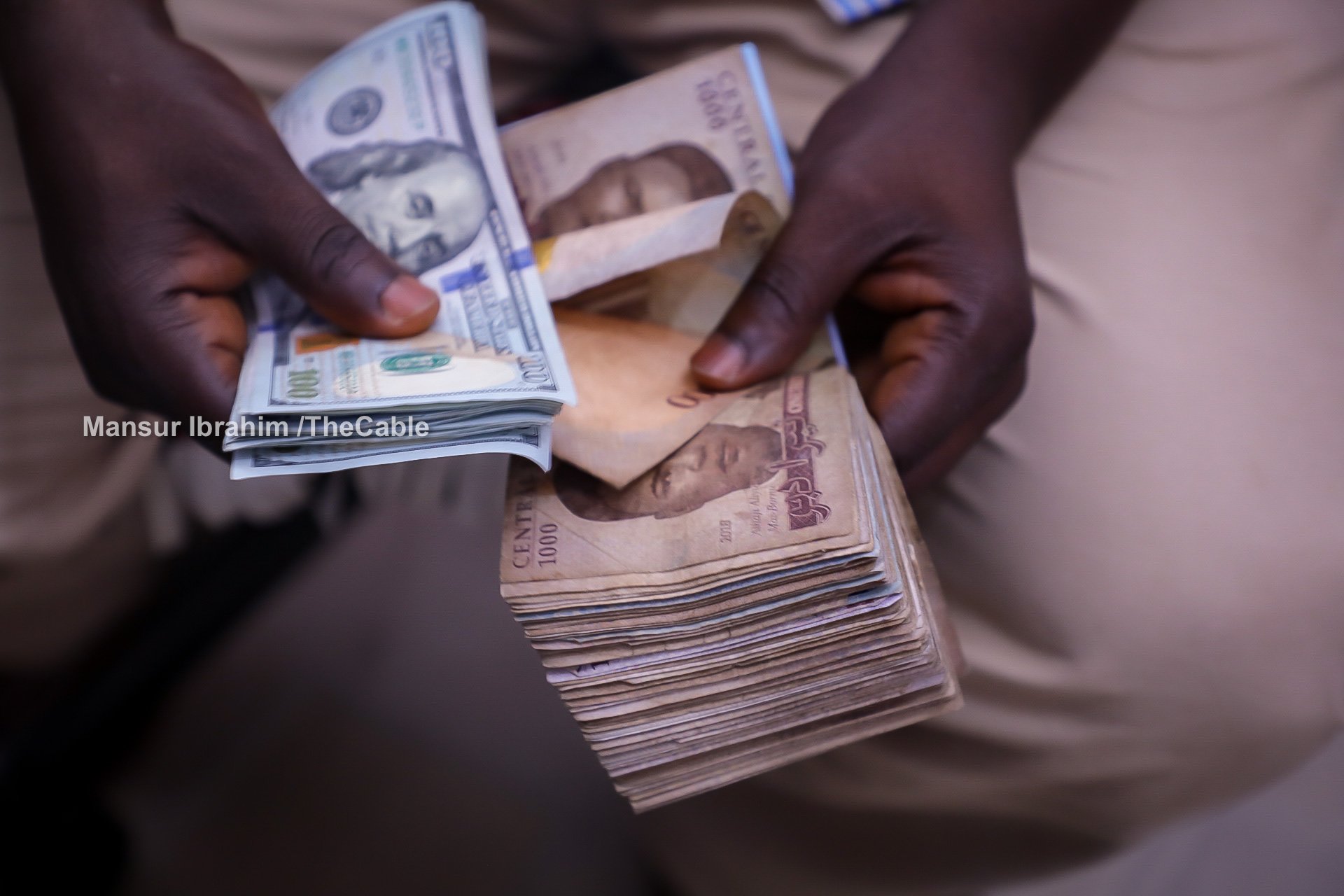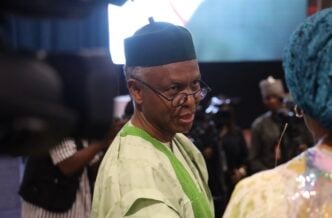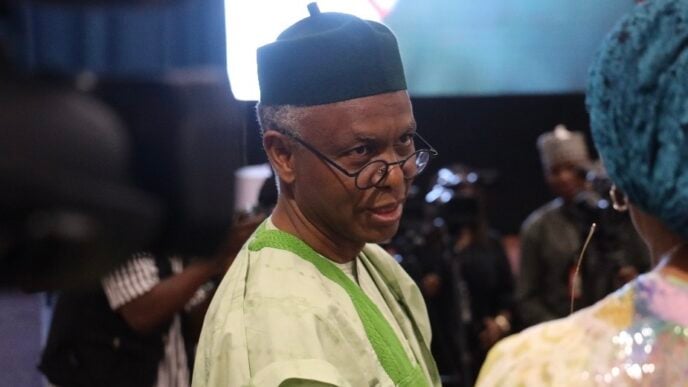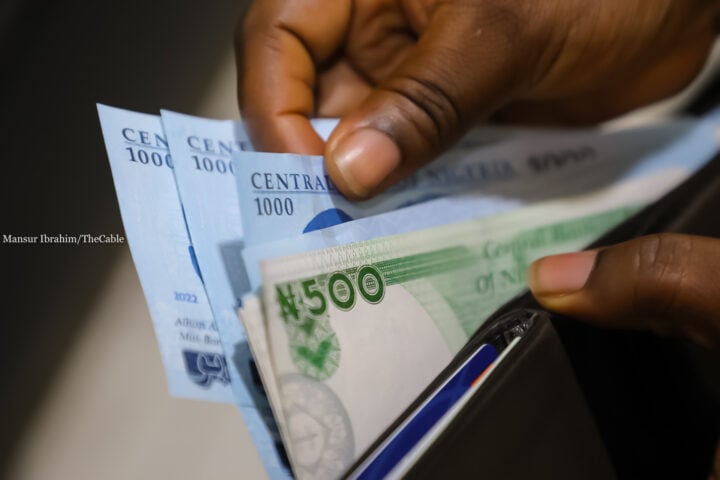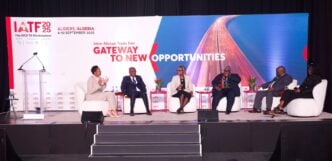BY HARUNA YAHAYA POLOMA
When Tanimu Yakubu claims that President Tinubu’s exchange-rate reforms have magically turned the naira into an “export engine,” he’s mistaking a survival strategy for an economic miracle.
Let’s not sugarcoat this: Nigeria has just gone through the worst and most brutal currency crashes in its entire history. Yes, the bleeding might have slowed—but the patient is still on life support. To call this intensive care interlude a moment of “economic sweet spot” isn’t sober economic analysis; it’s just a partisan spin dressed up as optimism.
Tanimu Yakubu pointed to the naira’s move from ₦1,800/$ down to roughly ₦1,525/$ and celebrated it as a dazzling 48.9% “annualised strengthening.” Again, that is not rational analysis but mathematical acrobatics. Let us look at what really happened: After months of chaos, the naira simply stopped free-falling and found a shaky ledge to latch on. Recall that Reuters and other currency trackers noted that the naira has been stuck in a narrow band—₦1,520 to ₦1,560—for months. That’s not a rebound as Yakubu claimed in his article. That’s merely a pause in the freefall. To turn a few months of breathing space into a year-long miracle, as Yakubu tried to do, is the oldest statistical trick in the book!
We were also told non-oil exports surged nearly 20% in value—a sign, supposedly, that devaluation is working. But just scratch beneath these numbers. Export volumes rose by only 5.5%. The rest came from soaring global commodity prices. Cocoa, for example, hit record highs, lifting all West African producers along with it. That too is not Nigerian policy genius at work; rather, it was blind luck. A windfall is not the same thing as competitiveness.
Yakubu’s claim that a weaker naira makes Nigerian goods more competitive is an economist’s age-old neoliberal fantasy. For our manufacturers, it has been a nightmare. Factories depend on imported machinery, spare parts, and packaging. Power and fuel are dollar-linked. When the naira tanked, input costs exploded. Margins collapsed. Many firms simply shut down. Even when we saw faint signs of life in business surveys, those same reports highlighted one stubborn fact: costs were crushing manufacturers. You don’t build an export miracle on the graves of dead factories.
Yakubu’s cheerleading extended to the supposed “clearing” of the FX payment backlog. But even the Central Bank itself quietly admitted it only paid claims that were deemed “valid.” Nearly $2.4 billion was dismissed outright. Some firms didn’t even get dollars at all—they were refunded in local currency, the naira. For a government that preaches credibility, that’s a spectacular own goal. Foreign Investors heard one clear message: Nigeria does not always honour its word!
Behind the charts and spin, Nigerians are drowning. Officials may pat themselves on the back for a “stable” naira, but the cost of living keeps climbing. Inflation only looks tamer because of statistical tweaks. On the ground, food, rent, transport— in fact everything—is still rising month after month. Real wages are collapsing. Families are cutting meals, delaying school fees, unable to afford healthcare and living hand-to-mouth by the millions. What policymakers call “reform,” ordinary Nigerians experience it as a daily act of cruelty.
Yes, non-oil exports hit $3.2 billion in the first half of 2025. But in the grand scheme of things, that is chicken change. Oil still dominates, by far. To call the naira an “export engine” because of a few billion dollars in cocoa and cashew shipments is like calling a garden tap the source of our River Niger.
Let us, however, give Tinubu’s government its due: the FX market is more transparent now than before, and some distortions have eased. But let’s not confuse transparency with transformation. The phantom stability we now see is owing less to smart government policy, and more on three fragile crutches: Nigerians being too broke to afford imports, cocoa prices are at historic highs, and the hot money from portfolio investors that could all too easily vanish tomorrow.
The truth is very simple: a floating currency is only a tool. On its own, it doesn’t build an economy. Without electricity, functioning ports, decent infrastructure, affordable credit, and real policy credibility, a floatation cuts deeper into household budgets than it does into trade deficits. The naira is not an export engine. It is a fragile lifeline. And that lifeline will snap the moment Nigeria begins to mistake blind luck for economic brilliance.
Haruna Yahaya Poloma can be contacted via [email protected]
Views expressed by contributors are strictly personal and not of TheCable.
